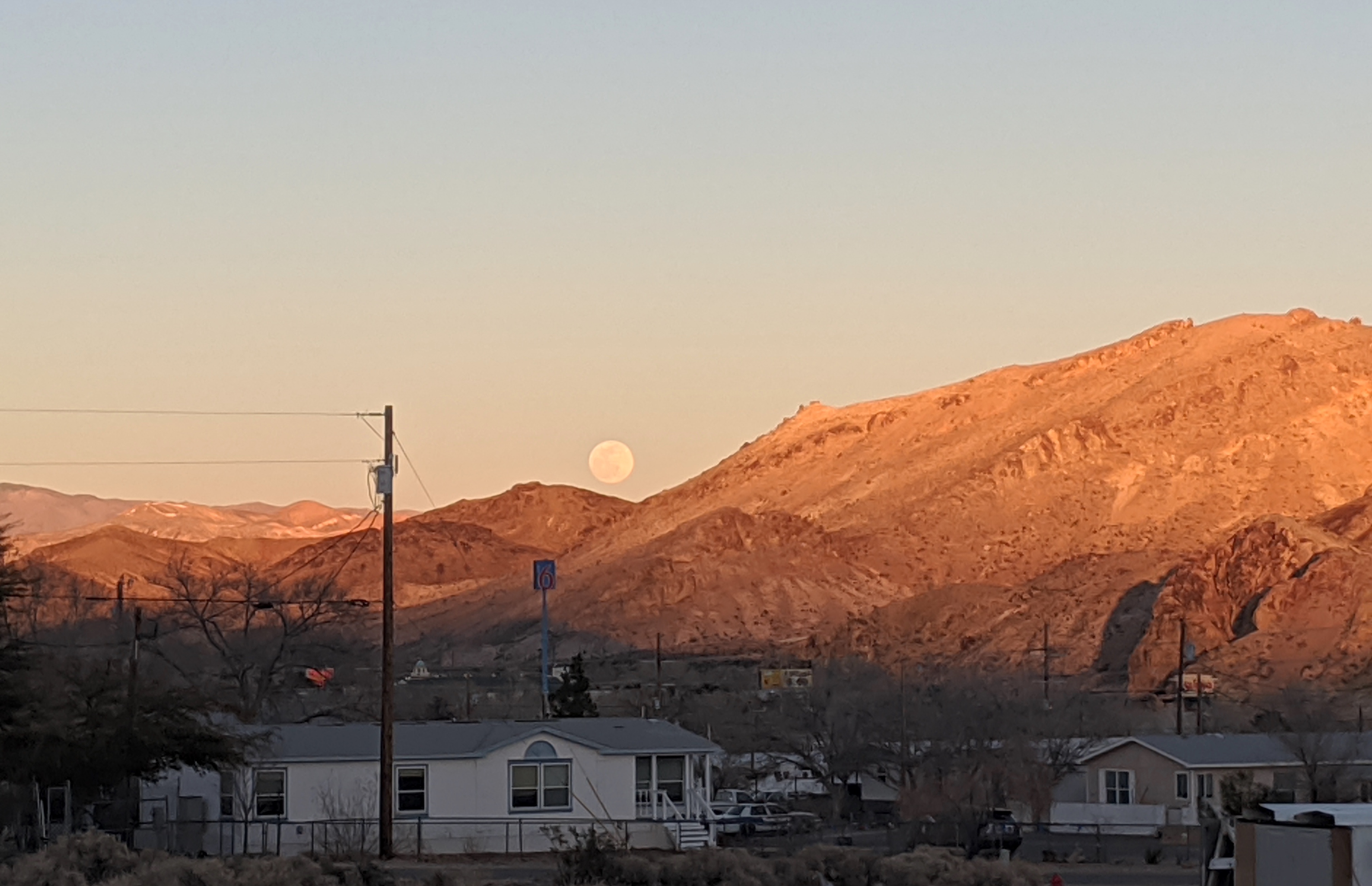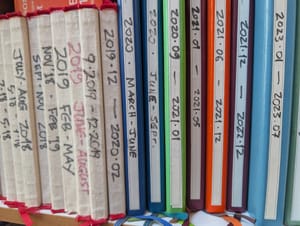
Part of a series on grief and gratitude.
I’m not entirely sure I know the difference between grief and depression.
My father died on February 7, and for the past two and a half weeks, I’ve been grieving his death. This is normal and expected. It’s exactly the kind of ordinary devastation that people all over the world feel every day, that we will all feel eventually.
We saw it coming from a long way off. I spent two weeks in early January caring for him at his home in Nevada, and then helping him move into a hospice care facility; I spent another weekend with him in late January; and then I spent the last few days by his side as he declined towards his last day on Earth. And the grief was still a surprise when it hit.
I then got sick almost immediately after returning home — my immune system almost certainly weakened by the grief I was carrying — and it was the nasty cold/flu that seems to be going around all over this year, with about three days of complete exhaustion and fever, followed by ten days of somewhat milder symptoms, varying day by day: coughing, eyes running, nose running, sneezing. KJ got sick too, and even the 13-year-old had a couple days of illness.
And then, with the grief and the sickness, I started to feel like I just couldn’t do anything. I couldn’t get going. I didn’t do laundry, I could barely read or talk with my family, I hardly wanted to eat. I lost all of last weekend to a sleepiness and weariness that is only now just starting to lift. This weekend has been somewhat better, but still low.
So whatever I’m feeling now, it’s almost certainly a mixture of grief, sickness, exhaustion, and depression.
These feelings don’t fit well into the narrative of Silicon Valley, or really any part of the working world, as far as I know. I’ve been fortunate that my bosses have been incredibly understanding of my need to be with my family, and of my subsequent sick days. I’ve had nothing but support at work. I would have taken the time to be with my father during his last few weeks anyway, but to know that I don’t have to find a new job after returning certainly makes things easier. I’m grateful for that.
But it’s not support, or the lack of it, that I’m talking about. It’s something more existential: A sense of not fitting. It’s the matter of trying to put one foot in front of the other, to keep the fingertips moving on the keyboard, to keep smiling at my coworkers, when the trap door of grief is opening up under my feet.
I’m not fully concentrated at work. My sense of time is a little off. Everything seems far less important than it did before. And really, is there anything that Silicon Valley wants to hear about less than the inevitability of death?
What to do with all these feelings? All this perspective?
My answer for now: I’ve been caring for myself as best I can, and taking it a day at a time. When the energy levels permit, I do yoga and qigong exercises that I’ve learned can help with feeling centered and happy. I stretch. I try to fit as much meditation as I can into my waking-up routine, although some mornings it’s just ten minutes at the kitchen table, cradling a warm cup of coffee in my hands. I’m a long way from regularly doing an hour of yoga and meditation every morning, as I was before.
I reached out to two Buddhist teachers I know this weekend. Each of them was very generous with their time, and spent over an hour talking with me, pointing things out and helping suggest some practices I can follow. More time on the zafu. Some helpful rituals for the memory of my father. Recognizing how lucky I am, how lucky we all are, to be alive. Seeing the lesson of my father’s death as a gift, an awakening, as something to be learned from and remembered. That, deep within the grief, there is also a reason to be thankful: Gratitude for the time I did get to spend with him, gratitude for his parenting, gratitude for his example, and for the chance to learn from his passing, this transition that we all must eventually make.
And most of all, the teachers remind me, remember to breathe.
Inhale. Pause. Exhale, slowly and deeply, as if you were sighing. Notice that pause at the end of the out-breath: That emptied-out moment, when you let go of everything just a little bit more, and the body settles into itself just a little bit deeper. That moment: A glimpse of the last breath, of the peace that might be possible when you let go with both hands.
And then: The in-breath, as natural as can be, filling the lungs again.


